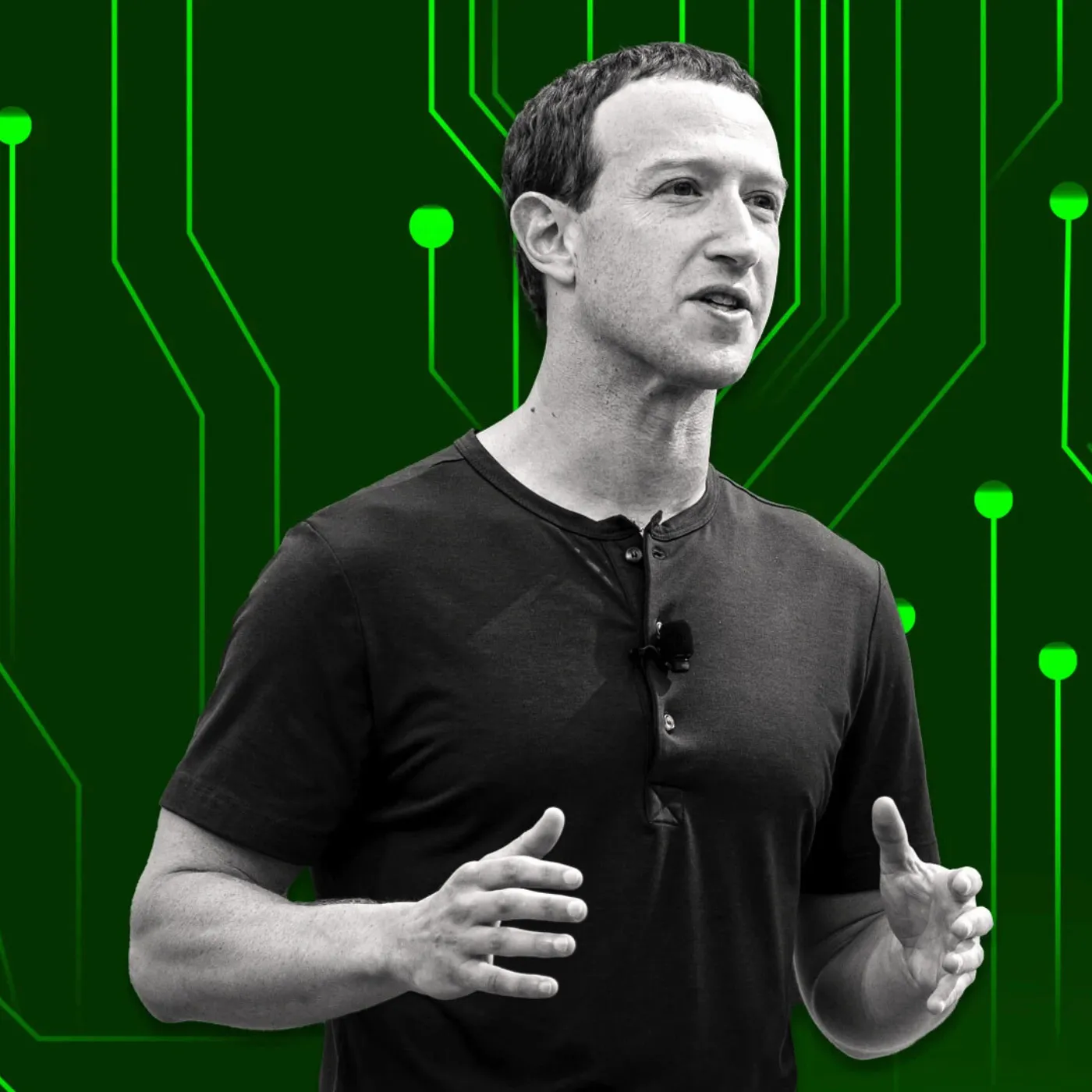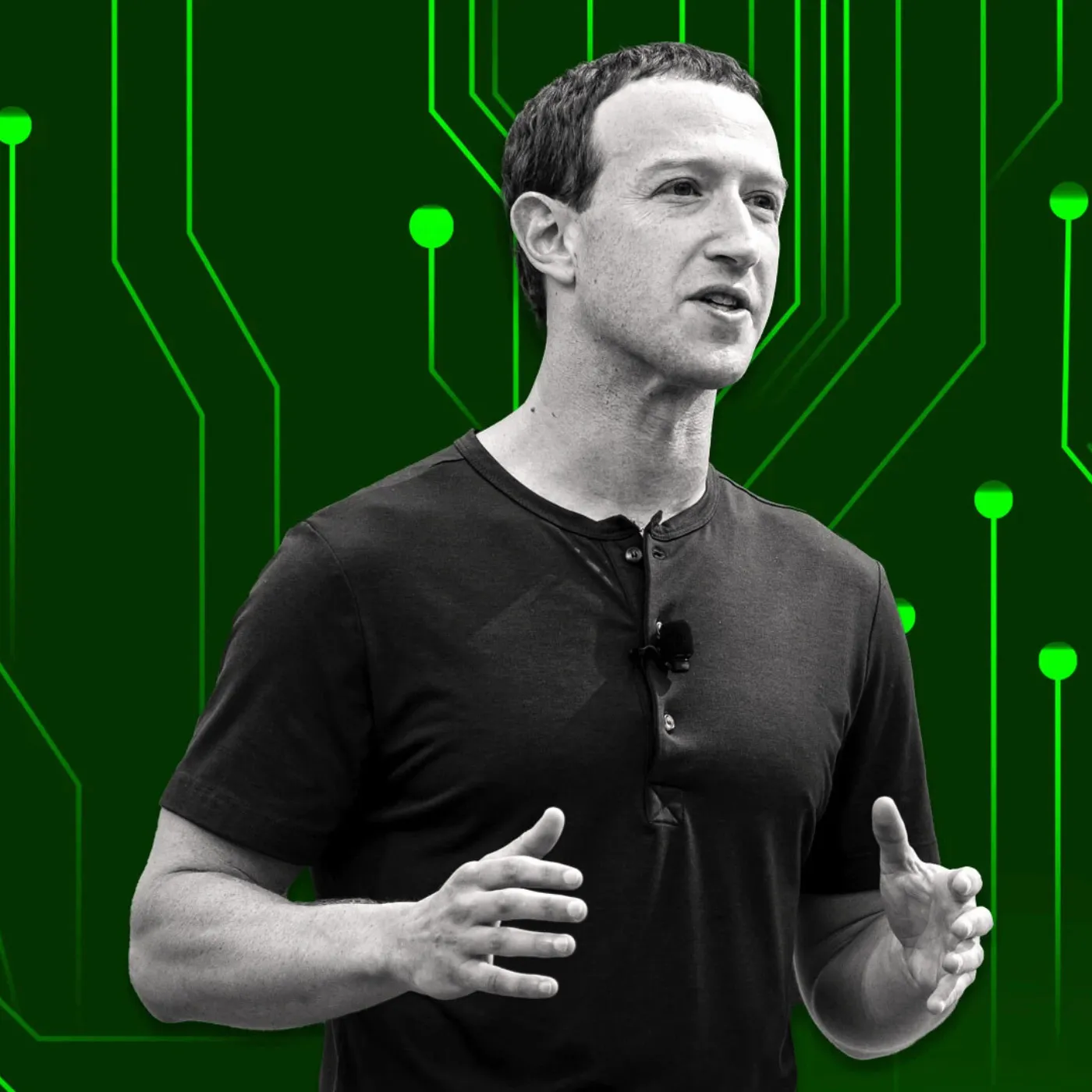

Mark Zuckerberg’s Vision for AI Revolution in Meta’s Coding by 2026
In a bold move towards the future of technology, Mark Zuckerberg, the founder of Meta (formerly Facebook), has set an ambitious goal to integrate artificial intelligence (AI) into his company’s development process. Zuckerberg’s vision is for AI to take over half of Meta’s coding tasks by 2026, a monumental shift in how software development is approached within the tech industry. This decision is poised to reshape the way Meta, and perhaps the broader tech world, utilizes artificial intelligence in everyday operations.

The Rise of Artificial Intelligence in Tech
Artificial intelligence has been a hot topic for years, with industries ranging from healthcare to finance embracing its potential to enhance efficiency, accuracy, and innovation. The idea of AI transforming industries is not new, but Zuckerberg’s vision represents one of the most ambitious applications yet. By 2026, Meta plans to have AI contribute to or even manage 50% of its coding tasks, potentially altering the landscape of software development, automation, and the tech workforce as we know it.

AI’s role in coding isn’t as far-fetched as it might sound. In recent years, AI has already shown promise in automating repetitive tasks and performing complex problem-solving at speeds and accuracy levels beyond human capability. AI tools like GitHub Copilot, a programming assistant powered by OpenAI, have already demonstrated that machines can assist programmers in writing code by suggesting lines of code, debugging errors, and even developing entire algorithms. These tools, however, are still far from fully autonomous.

Zuckerberg’s vision is to go even further, believing that AI can be trusted to handle a substantial portion of the coding responsibilities at Meta. As Meta continues to expand its product offerings—ranging from social media platforms like Facebook and Instagram to virtual reality through Oculus and the Metaverse—AI could become the backbone of the company’s engineering teams.
Why This Shift Matters
Mark Zuckerberg’s decision to embrace AI for coding tasks is not just about making Meta more efficient; it represents a broader shift in how the technology sector approaches innovation. Software development has long been a human-driven process. While AI is already being used to optimize some parts of the software development lifecycle, the idea of it taking over half of the coding work is a revolutionary step.
One of the primary motivations behind this initiative is the need for speed and scalability. In today’s fast-paced tech environment, companies need to innovate quickly to stay ahead of the competition. Meta, with its vast ecosystem of apps, services, and technologies, needs to remain agile and efficient. AI promises to accelerate development cycles, automate error detection, and optimize code, ultimately allowing Meta to release products faster and with fewer bugs.
Moreover, by automating coding tasks, Meta could significantly reduce human error, streamline complex coding processes, and free up engineers to focus on more creative, high-level problem-solving tasks. Automation has already proven successful in other industries, and it’s not hard to imagine the same benefits extending to software development.
The Role of AI in Software Development
AI’s integration into software development is an area that is still evolving. Many companies, including Meta, have begun experimenting with AI to assist developers, but full automation of the coding process is still in its infancy. While AI can be a powerful tool in identifying patterns in code, suggesting fixes, and improving efficiency, it is not yet capable of fully understanding complex software systems in the way that human developers do.
The idea of AI coding at Meta could involve AI-powered systems that work alongside human developers, analyzing vast amounts of data and patterns to generate code suggestions or even write entire modules. These systems could automate tedious tasks like refactoring code or testing software, areas where AI has already shown great promise. Over time, Meta plans to increase the scope of AI involvement in development, potentially allowing AI to write entire codebases for certain applications.
However, there are challenges to overcome. While AI can assist in automating repetitive coding tasks, complex logic and problem-solving often require a human touch. AI systems rely on large datasets and algorithms, but they still struggle to address the nuances and unique situations that human developers are trained to handle. It is unlikely that AI will completely replace human developers anytime soon, but it could significantly reduce the time and effort required for certain tasks.
The Potential Impact on Meta’s Workforce
As with any major technological shift, the move towards AI-driven coding at Meta raises concerns about the future of the company’s workforce. Zuckerberg’s plan to have AI handle half of the coding by 2026 suggests a reimagining of how software development teams will operate. While this may lead to greater productivity and efficiency, it also raises questions about the number of jobs that may be displaced as a result.
Meta currently employs thousands of engineers, developers, and software architects who play crucial roles in building and maintaining its vast array of platforms and services. AI taking over a significant portion of coding tasks could lead to a reduction in the demand for human developers. However, it’s important to note that AI’s integration could also create new roles in overseeing AI systems, fine-tuning algorithms, and developing AI tools.
Rather than replacing developers, AI could change the nature of their work. Developers may shift from writing code from scratch to managing and optimizing AI tools, working on high-level strategy, and solving more complex problems that require human expertise. It is possible that Meta will see a re-skilling of its workforce, with existing employees being trained to work alongside AI systems rather than being replaced by them.
In the broader context, AI’s rise in software development could signal a shift in the tech industry as a whole. As automation takes over more routine tasks, the demand for highly specialized skills may increase, leading to a greater emphasis on advanced technical knowledge, creativity, and problem-solving. Those who can adapt to working with AI could find themselves at the forefront of the next wave of technological innovation.
Ethical Considerations and AI in the Workforce
The increased use of AI in software development also brings ethical concerns into focus. One of the most pressing issues is the potential for job displacement. While AI can undoubtedly make coding more efficient, it also risks eliminating jobs traditionally held by human developers. The fear of job loss is a concern for many in the tech industry, especially for those who may not have the resources to retrain for new roles.
Furthermore, as AI systems become more integral to software development, there are concerns about transparency and accountability. AI systems are often viewed as “black boxes”—tools that can produce results without clear explanations of how those results were reached. In coding, this could lead to situations where errors or vulnerabilities are introduced into software without a clear understanding of how or why they occurred. The use of AI to automate critical systems also raises questions about security and the potential for biases to be introduced into the software.
Zuckerberg’s plan to integrate AI into Meta’s coding operations will likely require a careful balance between innovation and ethical responsibility. As AI becomes more advanced, it will be crucial for Meta to ensure that these systems are used transparently, fairly, and responsibly. Addressing potential ethical concerns will be key to ensuring that the move towards AI-driven coding benefits both the company and its workforce.
Meta’s Long-Term Vision for AI
Mark Zuckerberg has long been an advocate for the transformative power of AI. In his early vision for Meta (then Facebook), Zuckerberg saw artificial intelligence as a core component in shaping the future of social media and beyond. The company has already incorporated AI into various aspects of its platforms, from personalized content recommendations to advanced image recognition algorithms. The move to automate coding is just the next step in this ongoing evolution.
Looking ahead, Zuckerberg’s long-term vision for AI is likely to go beyond just coding. Meta has already shown interest in AI-powered systems for virtual reality (VR) through the Oculus platform and has made major investments in the Metaverse, which will rely heavily on AI for creating immersive digital environments. As Meta pushes the boundaries of what’s possible in digital interaction and virtual spaces, AI will play an increasingly pivotal role in shaping the company’s products.
The integration of AI into Meta’s coding practices is just one aspect of this broader vision. If successful, it could pave the way for other companies in the tech sector to follow suit, further accelerating the development of AI tools that revolutionize not just coding but every facet of digital innovation. Zuckerberg’s ambition to make Meta a leader in AI-driven software development could serve as a blueprint for the industry as a whole.
Conclusion
Mark Zuckerberg’s plan to have AI handle half of Meta’s coding tasks by 2026 is an audacious and groundbreaking goal that could revolutionize the tech industry. By embracing AI, Meta stands to enhance its efficiency, accelerate product development, and streamline complex coding tasks. However, this shift also raises important questions about the future of the workforce, the ethical implications of AI in software development, and the broader societal impact of automation.
As AI continues to evolve, Meta’s experiment with integrating it into its development processes will likely serve as a model for other tech companies. The next few years will be crucial in determining how AI can best complement human expertise in software development and how companies can manage the challenges and opportunities that come with these advancements.
While the full automation of coding tasks may still be a few years away, Zuckerberg’s vision for Meta represents a major step in the direction of AI-driven innovation. It will be fascinating to see how this ambitious project unfolds and what it means for the future of coding, software development, and the role of AI in the workplace.


















